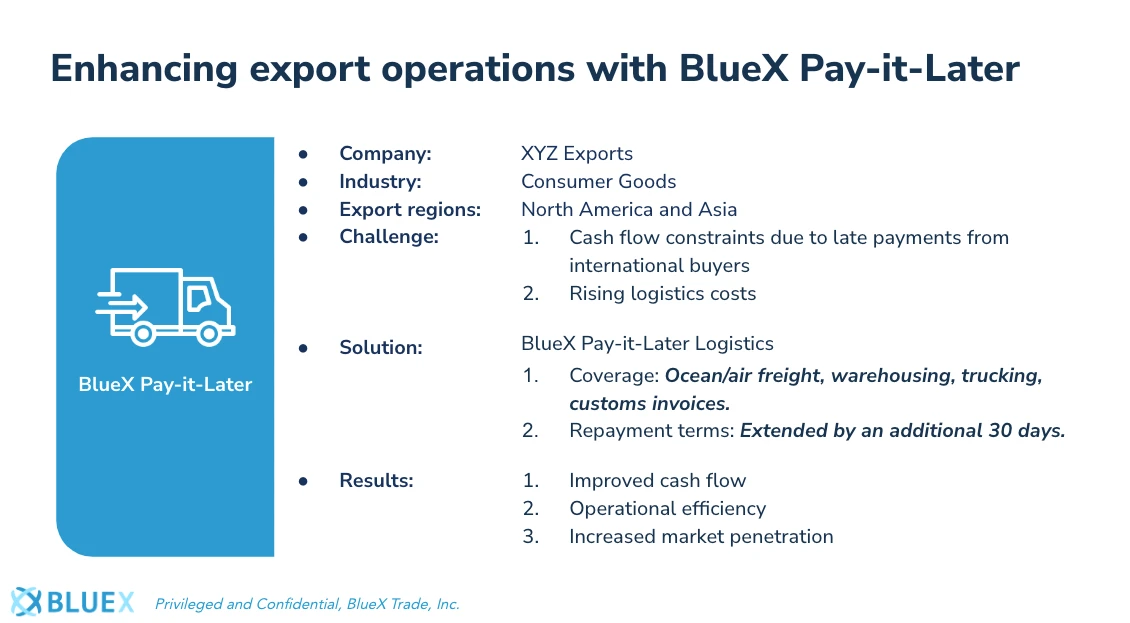
Exports are critical to the U.S. economy, but the country's trade balance reveals a challenging landscape. As of June 2024, according to the U.S. Bureau of Economic Analysis, the U.S. faced a $73.1 billion trade deficit, reflecting the ongoing imbalance between imports and exports. Although there has been some positive movement, with exports growing by 1.49% and imports by 0.59%, the deficit remains significant, totaling $22.7 billion more than in the same period in 2023. This environment underscores the need to enhance exports, particularly through the untapped potential of small businesses.
Despite making up 97% of U.S. exporters, small businesses contribute only 35% of total exports. These small businesses are key drivers of innovation and growth, particularly following the COVID-19 pandemic. In fact, small businesses were responsible for $128 billion of the $288 billion growth in U.S. exports from 2020 to 2021. However, many small businesses are unaware of their potential to export or face significant barriers to entering international markets.
Today, around 1.3 million small businesses are exporting, but there are an additional 2.6 million businesses with untapped potential to enter the global market. Concentrated in industries such as manufacturing, wholesale, plastics, chemicals, and medical equipment, small businesses can drive U.S. exports forward if given the right tools and support.
For many small and medium-sized businesses (SMBs), exporting represents a high-risk endeavor fraught with obstacles such as: High Investment Costs: The costs associated with international trade barriers, certifications, logistics, and distribution channels are substantial and difficult to manage without adequate resources.
- Lack of Knowledge and Experience: Many SMBs are unfamiliar with the complexities of export processes, from international billing to foreign exchange risk management and cultural differences in doing business.
- Regulatory and Payment Uncertainties: Navigating complex regulatory environments and managing payment risks, such as delayed payments or defaults from international buyers, adds to the cost and perceived risks of exporting.
- Digital and Online Presence Challenges: Many SMBs lack robust e-commerce platforms capable of handling international transactions, further limiting their ability to expand globally.
- Difficulty Finding Foreign Customers: Identifying and reaching foreign markets while navigating unfamiliar import regulations is another significant hurdle.
Despite these challenges, 53% of non-exporting businesses express interest in exporting if these barriers can be mitigated. Access to export training, assistance programs, and tax incentives could provide much-needed support.
Many businesses struggle with cash flow constraints, especially when managing large upfront logistics costs while waiting for international payments to clear. 6 out of 10 SMBs are denied access to the key funding required for success. To empower SMBs to gain success in exports, alternatives to traditional financial institutions are essential. Here, short-term financing solutions such as BlueX Pay-it-Later can play a transformative role.
BlueX provides innovative financing products specifically designed to address these pain points. BlueX Pay-it-Later Logistics and Pay-it-Later Cargo offer small businesses a lifeline by covering logistics and cargo expenses upfront, allowing for extended repayment of up to 60 days. This enables SMBs to manage their cash flow more effectively and allocate their resources to business growth without the financial strain that often accompanies business operations and expansion.

XYZ Exports, a consumer goods exporter, faced significant challenges with cash flow due to delayed payments from international buyers. Additionally, high upfront costs for logistics services, such as ocean freight and warehousing, resulted in financial strain, limiting their ability to scale operations.
With the help of BlueX Pay-it-Later Logistics, XYZ Exports secured up to $1 million in financing to cover logistics costs, with flexible repayment terms that extended by an additional 30 days. This solution improved their cash flow, allowing them to manage operational expenses and accept more orders. The added financial flexibility also enabled XYZ Exports to expand into new markets without the immediate pressure of logistics costs, increasing their overall export volume and market reach.
To further enhance small business exports, government and private sector partnerships are crucial. These partnerships can focus on creating digital tools to simplify the export process, prioritizing trade agreements that benefit small businesses, and providing financial support through trade finance options. According to a survey by PYMNTS and VISA, 7 in 10 growing businesses used external working capital solutions in the past year, with that number expected to rise to 9 in 10. This shows the growing reliance on trade finance products like BlueX’s Pay-it-Later options to help businesses manage cash flow and grow internationally.
The U.S. economy has vast untapped potential within its small businesses. By addressing the barriers to exporting and providing the necessary financial and operational support, SMBs can become a driving force in closing the trade deficit and fueling the nation’s economic growth through increased exports.
At BlueX, we provide SMBs with the financing solutions they need to succeed in the global market. Our Pay-it-Later products cover everything from inventory to logistics, offering up to $1 million in invoice payments and flexible terms that meet the demands of today’s fast-paced international trade environment. Additionally, our Get-Paid-Faster option accelerates accounts receivable payments, ensuring businesses have the working capital to grow, scale, and meet the challenges of exporting head-on.
Contact BlueX today to learn how our financing solutions can help your business thrive in global markets.